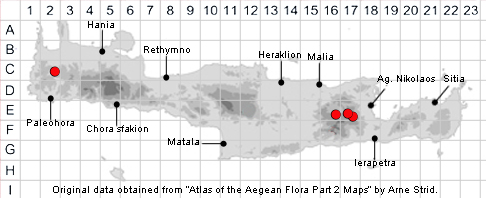SPECIES DESCRIPTION
ROSA AGRESTIS
Family and Genus:- See- ROSACEAE/Sect. CANINAE/R. RUBIGINOSA Group
Common Names:- Field briar
Homotypic Synonyms:- Centunculus minimus, Rosa arcadiensis, Rosa
hungarica, Rosa leucadia, Rosa micrantha
Meaning:- Rosa (L) Latin name for various roses.
Agrestis (L) Rustic, barbarous, wild on arable land.
General description:- Deciduous shrub.
Stems:-
1) Up to 2 m. Internodes long.
Prickles:-
1) Uniform, rather stout, usually curved or hooked, gradually dilated at the base,
sometimes few or absent on the flowering shoots.
Leaves:-
1) Leaflets, 5-7, 10-30(-50) x 12-25 mm, elliptical to oblong-obovate, acute, cuneate
at the base, biserrate to compound-serrate, glabrous or pubescent, always
glandular, dull green.
a) teeth, glandular.
2) Pedicels, 10-20 mm, glabrous or sometimes sparsely stipitate-glandular.
Flowers:-
1) Sepals, usually much lobed, densely glandular-ciliate, but without glands on the
back, deflexed, early caducous.
2) Petals, white, rarely pinkish, up to 18 mm.
3) Hypanthium, usually ovoid, smooth, red when mature; orifice less than 1 mm in
diam.
4) Styles, rather long, glabrous or slightly villous.
Fruit:-
1) Pseudocarp, of numerous achenes enclosed in the hypanthium. 10-15 mm,
subglobose, ovoid or ellipsoid, glabrous, red.
Key features:-
1) Leaflets, 10-30 x 12-25 mm, cuneate at the base.densely glandular at least
beneath.
2) Pedicels and hypanthium, stipitate-glandular or glandular pubescent.
3) Styles, glabrous or subglabrous.
4) Prickles, uniform, ± curved
5) Flowers, up to 30 mm in diam, white.
6) Sepals, glandular-ciliate.
Habitat:- Woodland margins, meadows, roadside thickets, etc. (0-)300-1200 m.
Distribution:- Fairly common throughout mainland Greece, Peloponnisos and
Ionian Islands. - Europe and NW Africa, extending through N Anatolia to Caucasus.
Rare on Crete known only from the Dikti mountains and one location in the far west.
Flowering time:- May to early July.
Photos by:- Courtesy of Wiki-Commons

